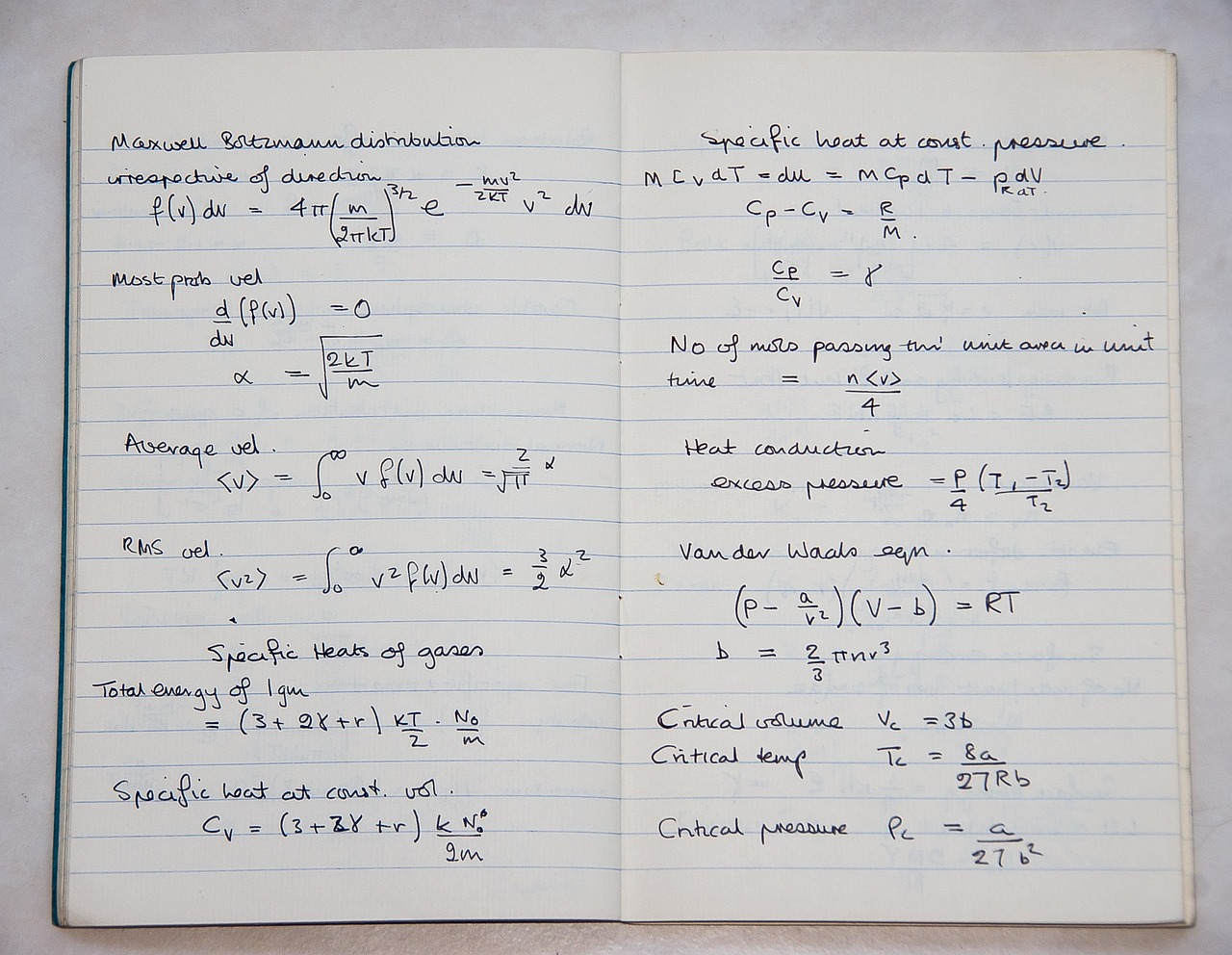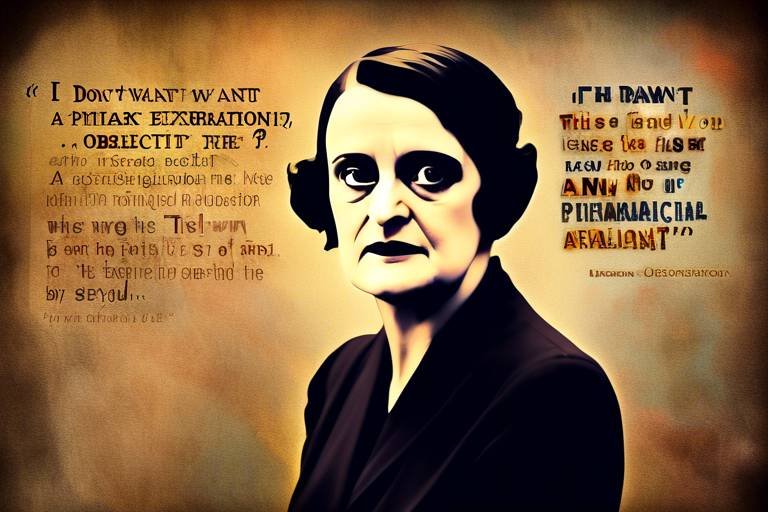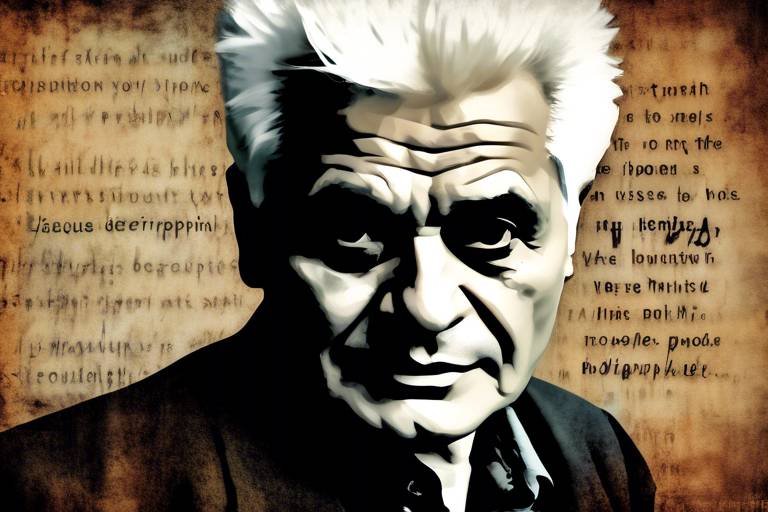Can Philosophy Help Understand Quantum Physics Better?
Have you ever pondered the mysteries of the universe and wondered if the answers lie beyond the realm of mere equations and experiments? Philosophy, with its rich tapestry of ideas and concepts, might just hold the key to unlocking a deeper understanding of quantum physics. At first glance, these two fields may seem worlds apart, but they are intricately connected in their quest to explore the nature of reality. In this article, we will embark on an enlightening journey to discover how philosophical frameworks can enrich our comprehension of quantum phenomena and the profound implications they hold for our understanding of science and existence.
Quantum physics, with its perplexing principles and counterintuitive outcomes, challenges our conventional notions of reality. It forces us to grapple with fundamental questions that have been the subject of philosophical debate for centuries. For instance, what does it mean for something to be real? Can we truly know the universe around us, or is our perception merely a shadow of the underlying truth? These inquiries not only resonate within the scientific community but also echo through the halls of philosophical thought.
As we delve into the intersection of philosophy and quantum physics, we will explore how philosophical concepts can illuminate our understanding of complex quantum phenomena. From the implications of the observer effect to the debates surrounding determinism and indeterminism, each topic presents a unique opportunity to blend scientific inquiry with philosophical reflection. Ultimately, this exploration may reveal that the questions we ask—and the frameworks we use to ask them—are just as important as the answers we seek.
In the following sections, we will dissect the role of philosophy in shaping scientific inquiry, examine key philosophical questions that arise from quantum mechanics, and consider how these ideas influence our understanding of consciousness and reality. So, are you ready to dive into this captivating realm where philosophy meets quantum physics? Let’s embark on this thought-provoking adventure together!
- How does philosophy influence scientific inquiry? Philosophy provides the foundational concepts and frameworks that guide scientific methods and theories, helping scientists to formulate questions and interpret their findings.
- What are some key philosophical questions in quantum physics? Important questions include the nature of reality, the role of the observer, and the implications of quantum indeterminacy on free will.
- What is the observer effect? The observer effect refers to changes that the act of observation can make on a quantum system, raising questions about the nature of reality and existence.
- How does quantum physics relate to consciousness? Some theories suggest that quantum processes may play a role in consciousness, leading to philosophical discussions about the nature of mind and reality.

The Role of Philosophy in Science
Philosophy has always been the bedrock of scientific inquiry, acting as a guiding light that illuminates the path of understanding. Think of it as the compass that helps scientists navigate the often murky waters of complex theories and abstract concepts. Without philosophical frameworks, scientific methods would lack the depth and critical analysis necessary for robust exploration. For instance, when scientists pose questions about the nature of reality or the validity of their observations, they are tapping into philosophical inquiries that have been debated for centuries. This interplay between philosophy and science is particularly pronounced in the realm of quantum physics, where traditional notions of reality are frequently challenged.
In quantum physics, the questions are not just about what we can measure or observe; they delve deeper into the essence of existence itself. How do we know what we know? What does it mean for something to be real? These are not merely scientific questions but philosophical ones that require careful consideration. The philosophical underpinning of science encourages a more profound inquiry into the implications of scientific discoveries. For example, when we discuss the behavior of particles at a quantum level, we must consider the philosophical implications of those behaviors. Are they merely statistical occurrences, or do they hint at a deeper, more interconnected reality?
Moreover, philosophy influences the formulation of scientific theories. Theories are not just collections of data; they are narratives that attempt to explain the data. Philosophers of science like Thomas Kuhn and Karl Popper have argued about the nature of scientific revolutions and the demarcation problem—what separates science from non-science. Their work encourages scientists to think critically about the frameworks within which they operate, challenging them to consider whether their theories adequately explain the phenomena they observe. This critical lens is essential in fields like quantum physics, where the stakes are high, and the implications of misinterpretation can be profound.
In addition, the philosophical exploration of concepts such as causality, reality, and existence plays a vital role in shaping our understanding of scientific theories. For instance, the Copenhagen interpretation of quantum mechanics presents a view that challenges our classical understanding of causation. It suggests that particles do not have definite properties until they are observed, raising questions about the very nature of reality itself. This philosophical inquiry is crucial, as it prompts scientists to rethink their assumptions and consider alternative perspectives that might lead to new discoveries.
In summary, the role of philosophy in science, particularly in quantum physics, is indispensable. It not only informs scientific methods and theories but also enriches our understanding of the universe. As we continue to explore the depths of quantum phenomena, the philosophical questions that arise will undoubtedly shape the future of scientific inquiry. Embracing this intersection of philosophy and science allows us to cultivate a more nuanced and comprehensive understanding of the complex world around us.
- How does philosophy influence scientific methods? Philosophy provides the foundational principles and critical frameworks that guide scientific inquiry, helping to shape hypotheses and interpret results.
- What are some philosophical questions raised by quantum physics? Quantum physics raises questions about reality, determinism, and the nature of observation, challenging our traditional understanding of these concepts.
- Can philosophy and science coexist? Absolutely! Philosophy and science complement each other by encouraging deeper inquiry and critical thinking about the nature of knowledge and existence.

Key Philosophical Questions in Quantum Physics
Quantum physics is not just a field of scientific inquiry; it’s a gateway to some of the most profound philosophical questions about our universe. At its core, quantum mechanics challenges our very understanding of reality, observation, and the nature of existence. This isn’t just theoretical mumbo-jumbo; it’s a deep dive into the fabric of what we perceive and how we interpret it. So, what are these key questions that keep philosophers and physicists up at night?
First and foremost, we must confront the question of reality itself. In classical physics, we could confidently assert that objects exist in a definite state, independent of observation. However, quantum mechanics introduces a twist: particles exist in a superposition of states until they are measured. This leads us to ponder, does reality exist without observation? Are we mere spectators in a cosmic play, or do we actively shape the narrative through our observations?
Another burning question is the concept of determinism versus indeterminism. In the classical world, if you know the initial conditions of a system, you can predict its future states with certainty. But quantum mechanics throws a wrench into this notion. Quantum events appear to be fundamentally indeterminate, challenging the classical view of causality. This raises the philosophical inquiry: is the universe inherently random, or is there a deeper order we have yet to uncover?
Then there’s the intriguing observer effect, which posits that the act of observation can alter the state of a quantum system. This leads to a fascinating philosophical conundrum: what is the role of the observer? Are we just passive observers, or do we play an active role in shaping reality? This question not only affects our understanding of quantum physics but also has implications for our grasp of consciousness and existence itself.
Moreover, quantum mechanics prompts us to reconsider the nature of free will. If quantum events are inherently unpredictable, does this mean our choices are also subject to randomness? Can we truly claim ownership over our decisions, or are we simply reacting to a series of quantum dice rolls? This intersection of quantum mechanics and free will opens a Pandora's box of philosophical debates that have been ongoing for centuries.
Lastly, we must consider the implications of various philosophical interpretations of quantum mechanics. Different theories, such as the Copenhagen interpretation and the many-worlds interpretation, offer distinct answers to these questions, each with its own philosophical ramifications. For instance, if the many-worlds interpretation holds true, it suggests a reality where every possible outcome occurs in a branching multiverse. How does this reshape our understanding of existence and our place within it?
In summary, the key philosophical questions arising from quantum physics are not merely academic; they challenge the very essence of what we know about reality, existence, and our role within the universe. As we continue to explore these questions, we find that the boundary between philosophy and science is not as rigid as it seems, but rather a fluid interplay that enriches our understanding of both.
- What is the observer effect in quantum physics? The observer effect refers to changes that the act of observation can make on a quantum system, suggesting that measurement can influence the state of a particle.
- How does quantum mechanics challenge determinism? Quantum mechanics introduces elements of randomness and indeterminacy, suggesting that not all events can be predicted with certainty, unlike classical physics.
- What is the significance of the many-worlds interpretation? The many-worlds interpretation posits that all possible outcomes of quantum measurements actually occur in separate, branching universes, raising questions about the nature of reality.

Determinism vs. Indeterminism
The debate surrounding determinism and indeterminism is not just a philosophical quandary; it’s a cornerstone of quantum mechanics that challenges everything we thought we knew about the universe. At its core, determinism posits that every event or state of affairs, including every human action, is the outcome of preceding events in accordance with the natural laws. In simpler terms, if you had enough information about the present, you could predict the future with absolute certainty. This idea has been a long-standing belief in classical physics, where the universe behaves like a well-oiled machine, with every gear turning predictably.
However, enter the realm of quantum physics, where things get a little murky. Quantum mechanics introduces a level of indeterminacy that flips the script on classical notions of causality and predictability. Instead of a straightforward cause-and-effect narrative, we find ourselves grappling with probabilities. For instance, consider the famous double-slit experiment, where particles can behave like both waves and particles, leading to outcomes that can’t be pinned down until they are observed. This phenomenon raises the question: if we can’t predict the exact outcome of a quantum event, does that imply that the universe is fundamentally unpredictable?
To illustrate this philosophical tug-of-war, let’s break down some key points:
- Determinism: The belief that all events are caused by preceding events and that the future is predetermined.
- Indeterminism: The idea that not all events are determined by previous states, allowing for randomness and unpredictability.
- Quantum Mechanics: A field of physics that suggests particles can exist in multiple states until observed, challenging the deterministic view.
This conflict between determinism and indeterminism isn’t just academic; it has profound implications for our understanding of reality. If indeterminism holds true, it suggests that the universe is more chaotic and less predictable than we ever imagined. It forces us to reconsider our notions of causality and control, especially when it comes to human actions and decisions. Are we truly the architects of our fate, or are we merely players in a cosmic game of chance?
As we dive deeper into this philosophical debate, it becomes evident that the implications stretch far beyond physics. They touch on our very understanding of free will, ethics, and the nature of existence itself. The more we explore quantum mechanics, the more we realize that our universe might be a tapestry woven with threads of both order and chaos, where every choice we make could be influenced by forces beyond our comprehension.
In conclusion, the discussion of determinism versus indeterminism in quantum physics is not just a theoretical exercise; it’s a profound inquiry into the nature of reality. As we continue to unravel the mysteries of the quantum world, we find ourselves at a crossroads, where philosophy and science meet, challenging our perceptions of existence and the universe we inhabit.
- What is determinism? Determinism is the philosophical belief that every event is determined by preceding events and natural laws.
- What is indeterminism? Indeterminism is the idea that not all events are determined by previous states, allowing for randomness.
- How does quantum mechanics challenge determinism? Quantum mechanics introduces unpredictability, suggesting that particles can exist in multiple states until observed, contradicting deterministic views.
- What are the implications of indeterminism for free will? If indeterminism is true, it raises questions about human agency and whether our choices are truly our own.

The Role of the Observer
The concept of the observer in quantum physics is nothing short of a philosophical enigma wrapped in a scientific mystery. Imagine standing in a room filled with mirrors, where every glance you take changes the reflection you see. This analogy captures the essence of the observer effect in quantum mechanics. When we talk about the role of the observer, we are delving into how the act of observation can actually alter the state of a quantum system. This phenomenon is not just a quirky aspect of physics; it challenges the very foundations of what we consider to be reality.
To put it simply, in the quantum realm, particles exist in a state of superposition, meaning they can be in multiple states at once—like being both here and there simultaneously. However, when an observer measures or interacts with these particles, they 'collapse' into a single state. This raises profound questions: Does reality exist independently of our observations? Or are we, in some sense, co-creators of the universe? The implications of these questions stretch far beyond physics and into the realms of philosophy and metaphysics.
Philosophers have long debated the implications of the observer effect. Some argue that it suggests a fundamental interconnectedness between consciousness and the physical world. Others contend that it undermines the classical notion of an objective reality. This debate can be summarized in a few key points:
- Subjectivity of Reality: If observation changes outcomes, can we ever truly know the universe as it is?
- Consciousness and Existence: Does consciousness play a pivotal role in shaping reality, or is it merely a bystander in a predetermined universe?
- Quantum Mechanics and Causality: How does the observer effect challenge our traditional understanding of cause and effect?
One of the most intriguing aspects of the observer effect is its relationship with free will. If our observations can influence the outcomes of quantum events, what does this mean for our decisions and actions? Are we merely observers in a grand cosmic play, or do we wield the power to shape our destinies? This question leads us into a labyrinth of philosophical inquiry, where science and philosophy intertwine in a dance of uncertainty.
In conclusion, the role of the observer in quantum physics is not just a technical detail; it is a doorway to deeper understanding. It challenges us to rethink our assumptions about reality, consciousness, and our place in the universe. As we continue to explore these questions, we may find that the boundaries between science and philosophy are not as rigid as they once seemed. Instead, they may be fluid, inviting us to reimagine the nature of existence itself.
- What is the observer effect in quantum physics? The observer effect refers to changes that the act of observation can make on a quantum system, leading to the collapse of superposition into a definite state.
- Does observation create reality? This is a philosophical question that arises from the observer effect, suggesting that reality may not exist independently of our observations.
- How does the observer effect relate to free will? The observer effect raises questions about human agency, suggesting that our observations may influence outcomes in ways that challenge traditional notions of free will.

Implications for Free Will
The concept of free will has long been a cornerstone of human philosophy, but when we dive into the depths of quantum mechanics, things start to get a bit murky. Imagine standing at a crossroads, where every choice you make branches off into countless possibilities. Now, what if I told you that quantum indeterminacy—the idea that not everything is predetermined—could actually support the notion of free will? It’s a tantalizing thought, isn’t it? The implications of quantum mechanics on our understanding of free will challenge us to reconsider how we view human agency.
At the heart of this discussion is the question: if quantum events are fundamentally unpredictable, does that mean our choices are also not entirely determined? Some philosophers argue that if the universe is not strictly deterministic, then there is room for free will to exist. This perspective suggests that our decisions might not be entirely governed by prior states of the universe, allowing for a more dynamic interpretation of human action. However, this opens up a Pandora's box of questions:
- Does randomness equate to freedom?
- If our choices are influenced by quantum events, can we truly claim ownership of those choices?
- How does this affect moral responsibility?
On the flip side, some critics argue that randomness is not the same as free will. Just because an event is unpredictable does not mean it is freely chosen. Imagine flipping a coin; while the outcome is random, you are not exercising free will in the same way as making a conscious decision. This debate leads us to explore various philosophical interpretations of quantum mechanics, such as the Copenhagen interpretation, which posits that particles exist in a state of probability until observed, and the many-worlds interpretation, which suggests that every possible outcome actually occurs in some parallel universe. Each of these interpretations has its own implications for free will and agency.
Furthermore, the intersection of quantum mechanics and free will raises questions about our understanding of consciousness. If our minds are influenced by quantum processes, could it be that our thoughts and decisions are not as linear as we once believed? This idea aligns with theories that suggest consciousness itself may play a role in shaping reality. It’s a bit like being a painter with a palette of infinite colors; your choices can create an entirely new canvas, but the strokes of your brush are influenced by factors that may be beyond your control.
In summary, the implications of quantum mechanics for free will are profound and complex. They challenge our traditional views of causality and moral responsibility, urging us to think deeply about what it means to choose. As we ponder these questions, we find ourselves at the intersection of science and philosophy, where the mysteries of the universe and the intricacies of human existence collide in a dance of uncertainty and possibility.
- What is the relationship between quantum mechanics and free will?
Quantum mechanics introduces elements of unpredictability, which some argue could support the existence of free will. - Does randomness imply free will?
No, randomness does not equate to free will; it raises questions about the nature of choice and agency. - How do different interpretations of quantum mechanics affect our understanding of free will?
Interpretations like Copenhagen and many-worlds offer varying perspectives on how quantum events relate to decision-making.

Philosophical Interpretations of Quantum Mechanics
When we dive into the realm of quantum mechanics, we find ourselves navigating a landscape filled with perplexing phenomena and mind-bending concepts. It’s like stepping into a surreal painting where the rules of classical physics no longer apply. The interpretations of quantum mechanics are not just technical explanations; they are deeply philosophical, challenging our understanding of reality itself. Some of the most prominent interpretations include the Copenhagen interpretation, the Many-Worlds interpretation, and the Pilot-Wave theory. Each offers a unique lens through which to view quantum events, and they provoke profound questions about the nature of existence.
To put it simply, the Copenhagen interpretation, championed by physicists like Niels Bohr, suggests that particles exist in a state of probability until they are observed. This interpretation implies that the act of measurement plays a crucial role in determining the state of a quantum system. Imagine it like a game of hide-and-seek: the particle is hiding in a cloud of possibilities, and only when you peek does it reveal its location. This perspective raises significant philosophical implications about the role of the observer in shaping reality.
On the other hand, the Many-Worlds interpretation, proposed by Hugh Everett III, takes a radically different approach. It posits that all possible outcomes of quantum measurements are realized, each in its own separate universe. This interpretation can feel like a cosmic explosion of possibilities, where every decision creates a branching path in the multiverse. It challenges our traditional notions of choice and consequence, suggesting that every action we take spawns an entirely new reality. It’s like flipping a coin: rather than landing on heads or tails, it creates two universes—one where it’s heads and another where it’s tails.
Then we have the Pilot-Wave theory, which introduces a deterministic element back into quantum mechanics. This interpretation suggests that particles are guided by a 'pilot wave,' which determines their behavior. It’s a fascinating blend of classical and quantum ideas, reminiscent of a marionette dance where the puppeteer (the wave) controls the movements of the puppet (the particle). This theory attempts to reconcile the randomness observed in quantum mechanics with a more classical understanding of determinism.
These interpretations don’t just remain on the fringes of physics; they spark intense philosophical debates. For instance, they force us to confront questions such as:
- What does it mean to observe something?
- Is reality independent of our observations?
- Do we have free will, or are we simply following predetermined paths?
As we ponder these questions, it becomes clear that the philosophical interpretations of quantum mechanics are not merely academic exercises. They have real implications for how we understand our place in the universe. Each interpretation invites us to reconsider our assumptions about reality, existence, and even consciousness itself. In a way, engaging with these interpretations is like embarking on a philosophical journey—one that challenges our deepest beliefs and compels us to think critically about the nature of the cosmos.
In conclusion, the philosophical interpretations of quantum mechanics serve as a bridge between science and philosophy. They encourage us to explore the profound questions that arise from the strange world of quantum phenomena. As we continue to unravel the mysteries of the quantum realm, these interpretations will undoubtedly play a crucial role in shaping our understanding of not just physics, but the very fabric of reality.
- What is the Copenhagen interpretation? The Copenhagen interpretation suggests that particles exist in a state of probability until they are observed, emphasizing the role of measurement in determining quantum states.
- What is the Many-Worlds interpretation? This interpretation posits that all possible outcomes of quantum events occur in separate, branching universes, creating a multiverse.
- How does the Pilot-Wave theory differ from other interpretations? The Pilot-Wave theory introduces determinism back into quantum mechanics by suggesting that particles are guided by a wave, contrasting with the randomness of other interpretations.

Philosophy of Mind and Quantum Consciousness
The relationship between consciousness and quantum mechanics is not just an intriguing topic; it's a profound puzzle that has captivated philosophers, scientists, and curious minds alike. Imagine consciousness as a vast ocean, with quantum mechanics being the waves that ripple across its surface. This interplay raises questions about the very nature of reality and our place within it. Can the mysteries of the mind be understood through the lens of quantum phenomena? Or are we venturing into realms that defy our current understanding?
One of the most fascinating theories that intertwines consciousness with quantum mechanics is the concept of quantum consciousness. This theory posits that quantum processes play an essential role in the workings of the human mind. Think of it like this: just as a computer processes information at lightning speed, our consciousness may be engaging with the universe on a quantum level, allowing us to experience reality in a unique way. Philosophers like David Bohm have suggested that consciousness might not be merely a byproduct of brain activity but is intricately linked to the fabric of reality itself.
Furthermore, the idea of panpsychism—the belief that consciousness is a fundamental aspect of all matter—opens up even more avenues for exploration. Imagine every particle in the universe possessing a degree of consciousness, contributing to a collective experience. This perspective aligns with certain interpretations of quantum physics, suggesting that consciousness is not just a human trait but a universal quality. Such a view challenges our traditional notions of consciousness being solely an emergent property of complex biological systems.
To illustrate these concepts further, let’s consider a few key philosophical implications that arise when we explore the intersection of quantum mechanics and consciousness:
- Reality as a Construct: If consciousness plays a role in shaping reality, then what does this mean for our understanding of the universe? Are we active participants in creating our reality, or merely observers?
- Agency and Free Will: The quantum indeterminacy raises questions about human agency. If our consciousness is linked to quantum processes, how does this affect our decisions and the notion of free will?
- Interconnectedness: The idea that all consciousness is interconnected through quantum mechanics could suggest a deeper unity in the universe, challenging the individualistic view of human experience.
As we delve deeper into these questions, we find ourselves at the crossroads of science and philosophy. The implications of quantum consciousness extend beyond mere academic debate; they touch upon the essence of what it means to be human. Are we merely biological machines, or is there a deeper, more profound connection between our minds and the universe? The exploration of these ideas invites us to rethink not only the nature of consciousness but also the fundamental structure of reality itself.
In conclusion, the philosophy of mind and quantum consciousness presents a rich tapestry of ideas that challenge our perceptions and understanding of existence. As we continue to explore these themes, we may uncover insights that not only enhance our grasp of quantum physics but also illuminate the very nature of consciousness and reality.
1. What is quantum consciousness?
Quantum consciousness is a theory suggesting that quantum processes are fundamental to the functioning of consciousness, positing that our awareness may be influenced by quantum mechanics.
2. How does panpsychism relate to quantum mechanics?
Panpsychism posits that consciousness is a fundamental quality of all matter, which aligns with certain interpretations of quantum mechanics that suggest consciousness might be intertwined with the fabric of reality.
3. Can philosophy help us understand quantum physics?
Yes, philosophy can provide frameworks for interpreting the implications of quantum physics, helping to address fundamental questions about reality, observation, and consciousness.

Panpsychism and Quantum Theory
Panpsychism is a philosophical viewpoint that suggests that consciousness is not merely a byproduct of biological processes but rather a fundamental aspect of the universe. Imagine it this way: if every particle in the universe has a tiny bit of consciousness, then consciousness isn't just an exclusive trait of complex organisms like humans. Instead, it permeates everything—from the smallest atoms to the vast cosmos. This idea can be quite a mind-bender, especially when we start to connect it with the perplexing world of quantum mechanics.
In the realm of quantum theory, phenomena like superposition and entanglement challenge our traditional understanding of reality. When we consider panpsychism in this context, it raises intriguing questions about the nature of consciousness and its relationship to the quantum realm. Could it be that the consciousness of particles plays a role in the way they behave? Could the observer effect, where the act of observation alters the state of a quantum system, hint at a deeper connection between consciousness and the fabric of reality?
To further explore this connection, let’s consider some key points regarding panpsychism and quantum theory:
- Consciousness as Fundamental: If consciousness is a basic feature of the universe, then it could influence how particles interact at the quantum level.
- Quantum Entanglement: This phenomenon, where two particles become interconnected regardless of distance, may suggest a collective consciousness that transcends individual particles.
- Observer Effect: The idea that observation can change the outcome of a quantum experiment might imply that consciousness is intricately linked to quantum events.
Philosophers like Philip Goff have been vocal proponents of panpsychism, arguing that it could provide a coherent framework for understanding consciousness in light of scientific discoveries. By positing that all matter possesses some form of consciousness, panpsychism offers a potential solution to the 'hard problem of consciousness'—the question of why and how subjective experiences arise from physical processes.
However, the integration of panpsychism with quantum theory is not without its critics. Some argue that attributing consciousness to particles may lead to an overly complex view of reality, complicating our understanding rather than clarifying it. Yet, the allure of such a theory lies in its ability to bridge the gap between the physical and the mental, offering a more holistic approach to understanding existence.
In conclusion, panpsychism presents a fascinating lens through which we can examine the mysteries of quantum theory. While it may seem radical to suggest that consciousness is a fundamental property of all matter, the implications of this idea could reshape our understanding of both consciousness and the universe itself. As we continue to explore the depths of quantum mechanics, the dialogue between philosophy and science will undoubtedly enrich our comprehension of reality in profound ways.
- What is panpsychism? Panpsychism is the view that consciousness is a fundamental aspect of the universe, present in all matter.
- How does panpsychism relate to quantum theory? It suggests that consciousness could play a role in quantum events, influencing how particles behave.
- Are there any criticisms of panpsychism? Yes, some argue that it complicates our understanding of consciousness and reality.

Quantum Mechanics and Reality
Quantum mechanics isn't just a collection of bizarre equations and strange particles; it fundamentally changes how we perceive reality. Imagine a world where particles exist in multiple states at once, only to "choose" a state when observed. This notion challenges our conventional understanding of existence, pushing us to reconsider what it means for something to be "real." In classical physics, we were comfortable with the idea that objects had definite properties, whether or not we were looking at them. However, quantum mechanics introduces a twist that can feel like a plot from a science fiction novel.
One of the most intriguing aspects of quantum mechanics is the concept of superposition, where particles can exist in multiple states simultaneously. Think of Schrödinger's cat: a thought experiment where a cat in a box is both alive and dead until someone opens the box. This paradox highlights the strangeness of quantum reality, where observation plays a crucial role. But what does this say about the nature of reality itself? Are we merely observers in a universe that only takes shape when we look? Or is there an underlying reality that exists independently of our observation?
To dig deeper, let's consider the implications of quantum entanglement, where particles become interconnected in such a way that the state of one instantly influences the state of another, regardless of distance. This phenomenon seems to defy the classical idea of locality—the notion that objects are only directly influenced by their immediate surroundings. If entangled particles can affect one another instantaneously, what does this mean for our understanding of space and time? It raises profound questions about the interconnectedness of the universe and suggests that reality might be far more complex than our senses can perceive.
Philosophers and scientists alike grapple with these questions, leading to various interpretations of quantum mechanics. Some argue that reality is fundamentally probabilistic, while others suggest that it might be more deterministic than it appears. For instance, the Copenhagen interpretation posits that physical systems do not have definite properties until they are measured, while the Many-Worlds interpretation suggests that all possible outcomes of quantum measurements are realized in a vast multiverse. Each interpretation offers unique insights into the nature of reality, yet none can claim to be the definitive answer.
As we navigate these philosophical waters, we must also confront the implications for our everyday lives. If reality is shaped by observation and influenced by entangled particles, what does this mean for our understanding of existence? Could it imply that our consciousness plays a role in the fabric of the universe? These questions not only challenge our scientific frameworks but also invite us to reflect on our place within the cosmos.
In conclusion, quantum mechanics does more than just describe the behavior of particles; it compels us to rethink the very nature of reality. As we explore these philosophical dimensions, we find ourselves at the intersection of science and metaphysics, where the lines between what is known and what is possible blur. The journey into understanding quantum mechanics is not just a scientific endeavor; it is a profound exploration of existence itself.
- What is quantum mechanics? Quantum mechanics is a fundamental theory in physics that describes the physical properties of nature at the scale of atoms and subatomic particles.
- How does quantum mechanics challenge our understanding of reality? It introduces concepts like superposition and entanglement, which suggest that reality may not be as straightforward as we perceive it.
- What is the observer effect? The observer effect refers to changes that the act of observation can make on a phenomenon being observed, particularly in quantum mechanics.
- What are the interpretations of quantum mechanics? There are several interpretations, including the Copenhagen interpretation, Many-Worlds interpretation, and others, each offering different insights into the nature of reality.
Frequently Asked Questions
- Can philosophy really help us understand quantum physics?
Absolutely! Philosophy provides a framework to explore the fundamental questions raised by quantum physics. By examining concepts like reality, observation, and determinism through a philosophical lens, we can gain deeper insights into the perplexing nature of quantum phenomena.
- What is the observer effect in quantum physics?
The observer effect refers to the phenomenon where the act of observation alters the state of a quantum system. This raises intriguing questions about the role of the observer and how reality might be influenced by our perceptions and measurements.
- How does quantum physics challenge our understanding of determinism?
Quantum mechanics introduces indeterminism, suggesting that not all events are predictable. This challenges classical notions of causality, where outcomes are determined by preceding events, and opens the door to discussions about randomness and chance in the universe.
- What are some philosophical interpretations of quantum mechanics?
There are several interpretations, including the Copenhagen interpretation, which posits that quantum particles exist in a state of probability until observed, and the many-worlds interpretation, which suggests that all possible outcomes occur in parallel universes. Each interpretation carries its own philosophical implications about reality and existence.
- Does quantum physics have implications for free will?
Yes, the indeterminate nature of quantum events raises questions about free will and human agency. If some events are fundamentally random, it challenges the idea that our choices are entirely determined by prior states, leading to rich philosophical discussions about autonomy and decision-making.
- What is panpsychism and how does it relate to quantum theory?
Panpsychism is the philosophical view that consciousness is a fundamental aspect of the universe, present even at the quantum level. This perspective aligns with certain interpretations of quantum mechanics, suggesting a deeper connection between consciousness and the fabric of reality.
- How might quantum mechanics reshape our understanding of reality?
Quantum mechanics challenges traditional notions of reality, suggesting that it may not be as fixed and objective as we once thought. This can lead to a more fluid understanding of existence, where reality is influenced by observation and consciousness, prompting us to reconsider what we know about the universe.



















